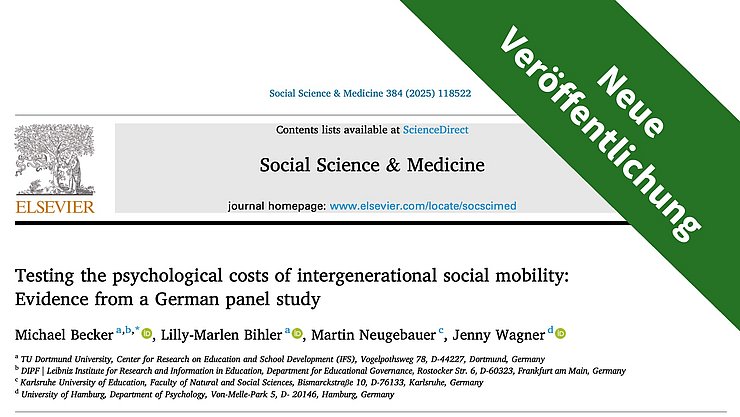Becker, M., Bihler, L.-M., Neugebauer, M., & Wagner, J. (2025). Testing the psychological costs of intergenerational social mobility: Evidence from a German panel study. Social Science & Medicine, 384, 118522.

Becker, M., Bihler, L.-M., Neugebauer, M., & Wagner, J. (2025). Testing the psychological costs of intergenerational social mobility: Evidence from a German panel study. Social Science & Medicine, 384, 118522. https://doi.org/10.1016/j.socscimed.2025.118522
Abstract
This study investigates the psychological costs of intergenerational social mobility, focusing on both upward and downward mobility. While prior research has often overlooked the role of selection effects, we explicitly disentangle whether disparities in mental health and well-being are attributable to the experience of social mobility itself or to pre-existing individual differences. Using data from a German panel study that follows individuals from late adolescence (age 18) into work-life (age 30), we assess psychological adjustment for different forms of social mobility based on individuals' own educational attainment relative to their parents’. We apply entropy balancing to compare models with and without adjustment for selection effects. Initial results, unadjusted for selection, show that downward mobility is linked to poorer mental health and well-being, supporting the “falling-from-grace” hypothesis. In contrast, upward mobility shows no significant association with mental health outcomes, aligning with the “acculturation” hypothesis. Crucially, when accounting for selection, the apparent disadvantages of downward mobility disappear. Our findings suggest that psychological costs attributed to social mobility are primarily the result of pre-existing vulnerabilities rather than mobility itself, emphasizing the importance of considering selection processes in research on social mobility and health.
